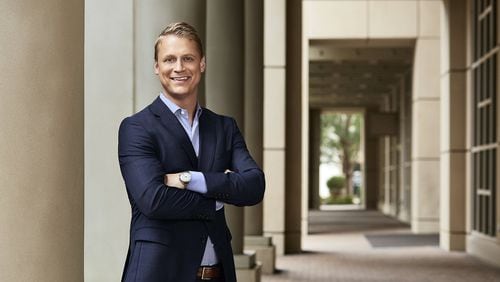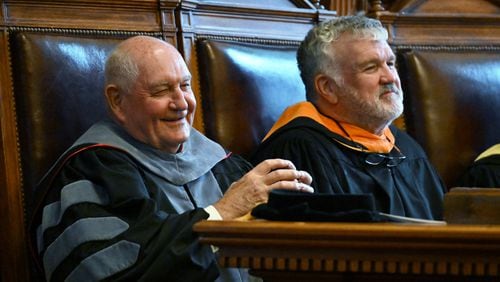What do we talk about when discussing retirement planning? One of the most deep-seated human fears, “Will my money ever run out?” Hence, much of the discussion and debate centers on saving and investing to build a retirement war chest that will fund our post-career years.
What is often overlooked, though, in this savings arms race is our quality of life in retirement. Will you be a happy retiree?
There’s much more to a happy retirement than simply having enough money tucked away. In fact, I’d even say some of those other things are more important than your savings level. Trust me, there are a lot of well-funded but unhappy retirees. How can you avoid an unhappy retirement, and what can we learn from unhappy retirees?
In an effort to answer that question, I conducted a comprehensive study that included more than 1,350 retirees across 46 states. My findings became the basis for my book, "You Can Retire Sooner Than You Think." The research was focused not only on the financial situations of these people, but also their overall quality of life.
Bottom line: There are significant differences between how happy and unhappy retirees envision their retirement and spend their money.
Here are three major mistakes that the unhappy retirees in my study had in common:
1. Unhappy Retirees Can’t Define the Purpose of Their Money.
Too many people moving toward retirement years have the false impression that the money that they have saved is going to make them happy once the big day arrives. They have no vision for their retirement, no plans, no specific dreams they want to pursue.
The happiest retirees understand that the point of saving is to enable them to enjoy the things that they love during retirement. Whether it's traveling, supporting causes, helping the grandkids attend college, or owning a lake house, happy retirees have a purpose for their money.
I would argue having a vision for retirement is as important as saving for it. It will determine not only how much money you really need, but how much joy that money and free time will bring to your life. If you don’t have a mental picture of your post-career years, start working on it tonight. It can start by simply dreaming with your spouse, but eventually you want to get it on paper. Sure, you can make changes over the years, but that document is every bit as important as your brokerage statements to creating a happy retirement.
2. Unhappy Retirees Have a “Rich Ratio” Under 1.
The Rich Ratio is simple: It is the amount of money that you have in relation to the amount of money that you need. (For purposes of illustration, note that this calculation should be done with after-tax, your "take home," income amounts.)
It’s easy to calculate your Rich Ratio. Simply take the amount of monthly income you should have or do have in retirement (Social Security + pension + any additional steady income streams), including what your nest egg should produce, and divide it by what you expect to spend each month to live the retirement you want: Have / Need = Rich Ratio. Let’s compare two very different situations:
Brittany wants to travel in retirement, so she needs $8,000 a month. She has a small pension from her time working with a cable company ($1,000/month), plus Social Security at age 66 of $2,200/month. She has saved $1,000,000 in her 401(k).
Brittany’s Have = $1,000 (pension) + $2,200 (Social Security) + $3,750 (using an average income yield of 4.5 percent per year from her 401(k) withdrawn monthly) = $6,950
Brittany’s Need = $8,000
Brittany’s Rich Ratio = $6,950/$8,000 = 0.87
Brittany’s Rich Ratio is below 1, so we can’t consider her to be “rich,” and she unfortunately falls into our “unhappy” retiree group.
Now, let’s look at Jack.
Jack needs just $4,000 a month to retire comfortably. He has already paid off his house, so he’s living mortgage free. Jack also has a small pension of $1,300/month. He receives $1,800 from Social Security every month, and he has $500,000 in his 401(k).
Jack’s Have = $1,300 + $1,800 + $1,875 (using an average income yield of 4.5 percent per year from his 401(k) withdrawn monthly) = $4,975
Jack’s Need = $4,000
Jack’s Rich Ratio = $4,975/$4,000 = 1.24
Despite the fact that Jack has less money in his retirement account and a smaller net worth than Brittany, he is actually set up to be a much happier retiree than Brittany.
3. Unhappy Retirees are Burdened With Housing Debt
Happy retirees have typically either paid off their mortgage or will be within five years of doing so when they retire. Conversely, a large percentage of unhappy retirees have 10 or more years until their house will be paid off.
If you are going to move in retirement, it should be into a house that you can pay off completely so you aren’t saddled with extra years of mortgage payments. As you consider relocating, remember, too, that buying a new house may incur moving costs, new furniture, drapes, rugs, cable and TV hookups, etc.
The same way of thinking applies to home renovations. Don’t jump in too quickly. Before you remodel that kitchen or finish your basement, understand that each upgrade has an uncanny way of spurring on another project. Before you know it, you are in the middle of a significant remodel, and money that was supposed to last in perpetuity — that retirement war chest — is flying out the window.
In other news:
Keep my two rules in mind if you even think you want to move or do home improvements:
- If you are planning to move while in retirement, be sure that you can move into a new home without having a mortgage — essentially swapping your current home equity (or paid-off mortgage) for a home owned "free and clear."
- Similarly, if you really want to make some home improvements, try your best to take care of them before you stop working.
Retirement should be a time when you are able to fully devote your energy and finances to doing the things you love. You can make that happen by avoiding these, and the other mistakes made by unhappy retirees.
Wes Moss has been the host of “Money Matters” on News 95.5 and AM 750 WSB in Atlanta for more than seven years now, and he does a live show from 9-11 a.m. Sundays. He is the chief investment strategist for Atlanta-based Capital Investment Advisors. For more information, go to wesmoss.com.
DISCLOSURE
This information is provided to you as a resource for informational purposes only. It is being presented without consideration of the investment objectives, risk tolerance or financial circumstances of any specific investor and might not be suitable for all investors. Past performance is not indicative of future results. Investing involves risk including the possible loss of principal. This information is not intended to, and should not, form a primary basis for any investment decision that you may make. Always consult your own legal, tax or investment advisor before making any investment/tax/estate/financial planning considerations or decisions.
About the Author






